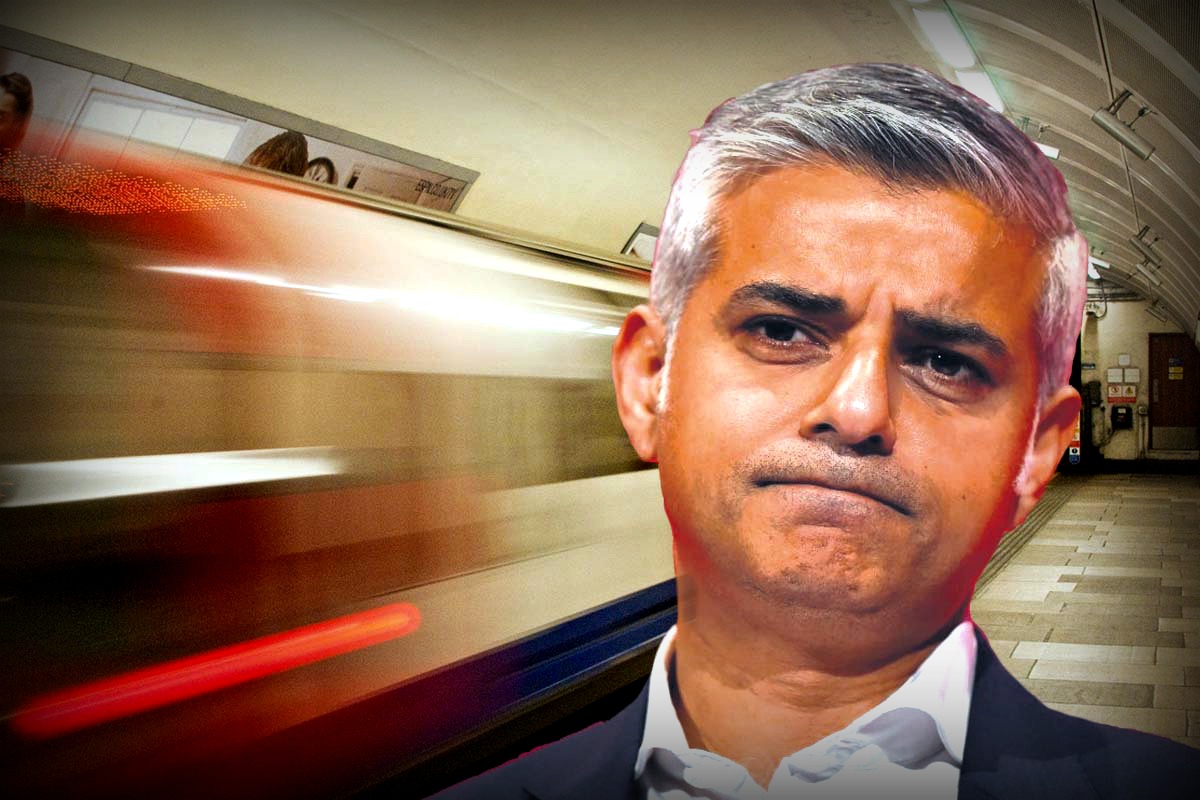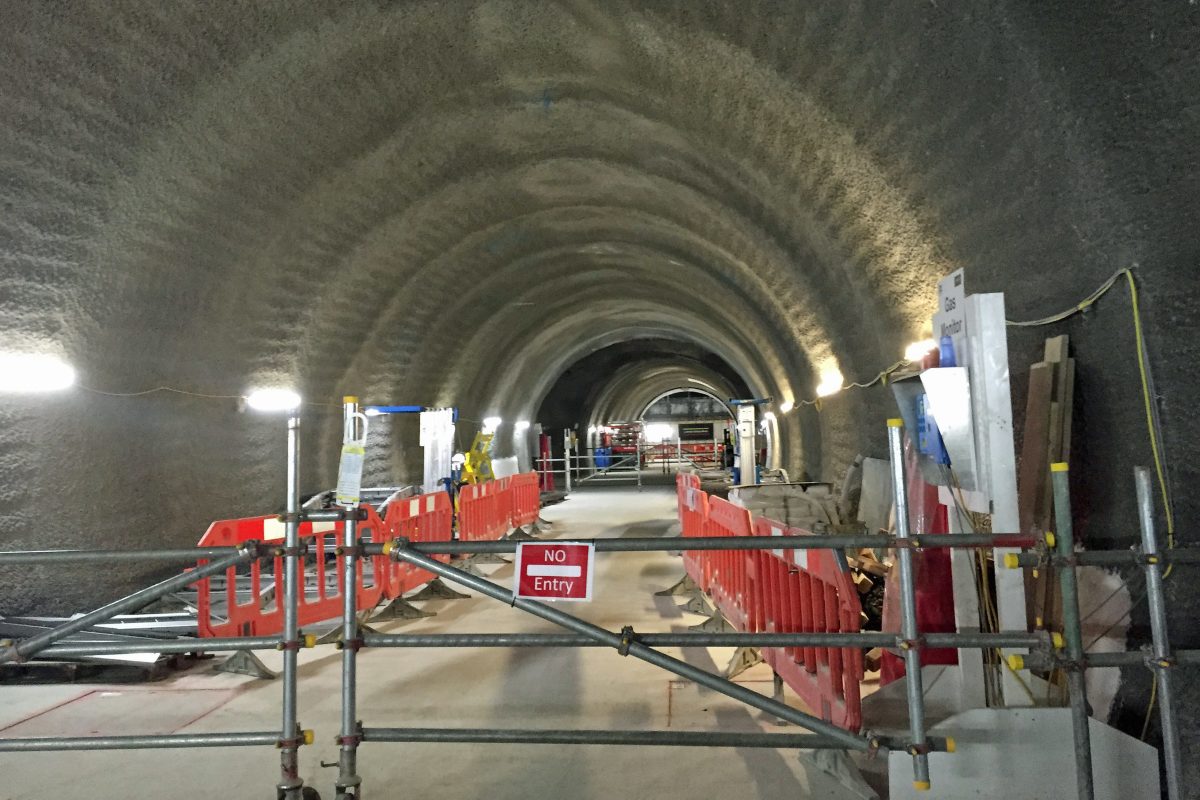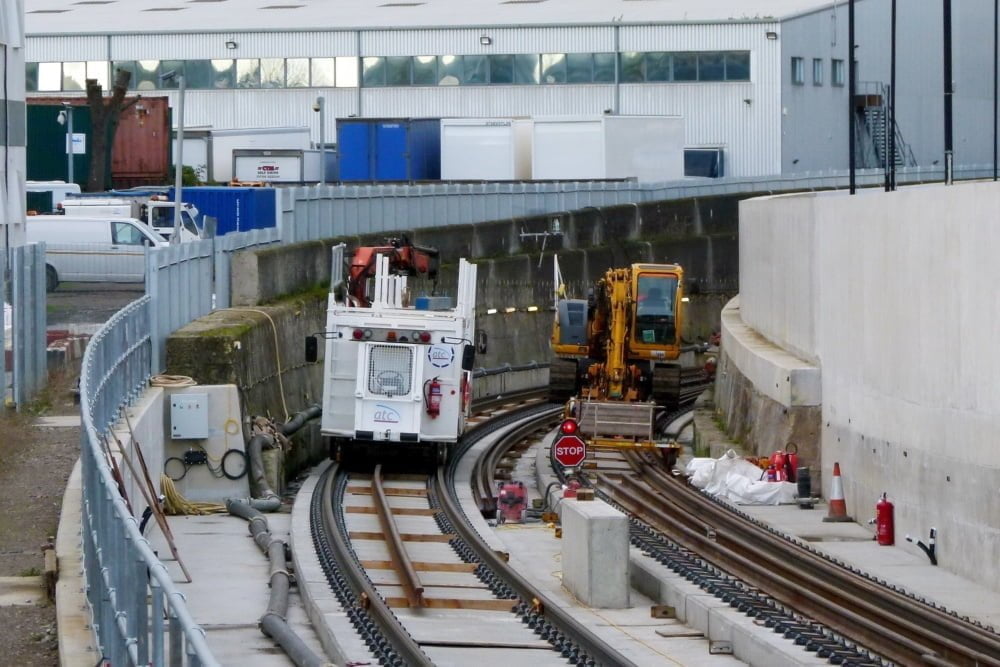The massive delays on London’s Crossrail project are yet another example of the failures of outsourcing and the inefficiency of private enterprise. This once again proves why we must nationalise the big construction companies.
Without a doubt the Crossrail project has been one of the largest and most controversial construction jobs of the last decade, certainly since the building of the Jubilee line.
Costing billions of pounds and utilising thousands of contractors and sub-contractors, the Elizabeth Line (as nobody is calling it) had been designed to provide speedy transport by train from Shenfield and Abbey Wood in the east to Reading and Heathrow in the west, going directly through the centre of London. After years of work it was scheduled to finally open in December of last year.
At least that was the story up until last autumn when it was finally announced that it would not now open until December of this year, a full year’s delay. In fact, sources indicate that even this target cannot be reached. What we are now seeing is a story of claims and counter-claims, buck-passing and blundering on a massive scale.
In the dark
 Crossrail is funded from the public purse, yet the actual running of the whole project has been passed over to Crossrail Ltd (CRL), which is a wholly-owned subsidiary of Transport for London (TfL), the public transport organisation for London. Bizarrely this has allowed it to operate under less ‘transparency’ than would be the case with (for example) TfL itself, something called ‘separate governance arrangements’. In fact, so unscrutinised was CRL that until recently TfL and the Department for Transport only had one non-executive director each on the CRL board.
Crossrail is funded from the public purse, yet the actual running of the whole project has been passed over to Crossrail Ltd (CRL), which is a wholly-owned subsidiary of Transport for London (TfL), the public transport organisation for London. Bizarrely this has allowed it to operate under less ‘transparency’ than would be the case with (for example) TfL itself, something called ‘separate governance arrangements’. In fact, so unscrutinised was CRL that until recently TfL and the Department for Transport only had one non-executive director each on the CRL board.
The last six months have seen all the various parties involved trying to pass the blame for the fiasco on to each other.
In particular, there has been repeated attempts to find out who knew what and when. A lot of discussion has revolved around when exactly London Mayor Sadiq Khan knew of the problems: that Crossrail were not in fact “managing” the delays in the project; that they could not possibly meet the December 2018 deadline; and that all the “endless assurances” of last summer were just worthless.
It has been implied that Khan knew about the delay as early as July and that “the game was up”. Indeed anyone who actually took the bother to visit the main sites would have quickly grasped that muddy holes in the ground do not become fully-built stations in just a few months. Why they imagined that this problem would go away by itself is a mystery indeed.
Caroline Pidgeon, chair of the London Assembly transport committee, soon wrote to Khan complaining about “partial and contradictory” statements. In turn, this earned her a sharp letter back, complaining that he was innocent and just repeated what he was told.
Meanwhile, the now-former CEO of Crossrail, Terry Morgan, has been repeatedly grilled by various committees to find out what he knew. He has blamed TfL and Khan for the confusion, along with his PowerPoint programme.
Visiting the public minutes of the CRL board will get you little joy as huge sections have now been redacted. The Department of Transport has been keen to pretend that all this is nothing to do with them, even though they sign the somewhat massive cheques.
Blame game
 One thing is certain: clearly the main contractors – Bombardier, Siemens, Alstom and Costain – according to Morgan, had been made very aware last summer that they were “no longer capable of delivering the programme”. But why did they need to be told this?
One thing is certain: clearly the main contractors – Bombardier, Siemens, Alstom and Costain – according to Morgan, had been made very aware last summer that they were “no longer capable of delivering the programme”. But why did they need to be told this?
The new trains in particular have been beset with problems. In one incident, the train doors would not open at Stratford; although if you pressed the buttons on the other side you could open the opposite doors onto the track side of the platform – hardly a safe thing to happen. It took eight minutes to open the correct doors. Most of these new trains are still lying idle. Signaling problems along the line have been reported with a number of test fails.
However, attempts to blame everything on dodgy trains and the signaling system have now been abandoned in the face of reality. The new CEO of Crossrail, Mark Wild, spelt it out this January when he said that the project was: £2.6 billion over budget; had not one new station ready for use; was behind on 15 months worth of testing; and would require at least three more years to get everything open and running as planned.
Wild has also referred to “wrong” information being supplied to senior figures about “valuations and estimates of work to come”.
Capitalism’s chaos
No doubt the blame game will continue for months and years to come. However, it is clear that the whole system is to blame. The contractors have made a mint out of all this, taking the money and then not doing the work on time. Each delay created roll-on delays elsewhere, which have just built up and up, with nobody seemingly aware. Each contractor just looked after themselves.
The management of CRL, together with Sadiq Khan and the government, just sat back and trusted in the abilities of private enterprise to do the job – there was little-to-no central planning or, more importantly, supervision. They complained about the complexity of the project, as if it was all one big surprise to them. Morgan, himself, only worked two or three days a week on the job as CEO.
Socialists talk about the need for a planned economy. What we are seeing here is the unplanned economy. That this is a public project, paid for by us, only makes it worse.
This is why we call for the nationalisation of the monopolies and the construction firms, with these to be run under workers’ control and management as part of a socialist plan of production.
The Crossrail story has shown just how inept and wasteful capitalism is. The so-called efficiency of private enterprise seems to work in one area only: the pocketing of staggering profits at our expense.






